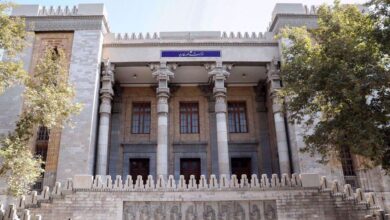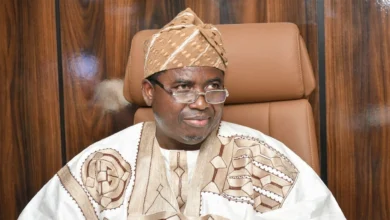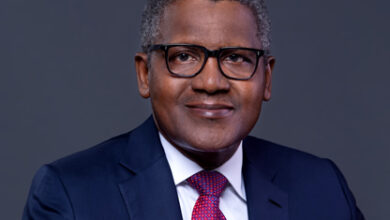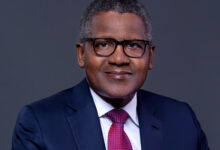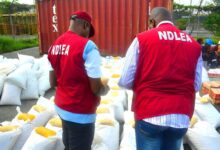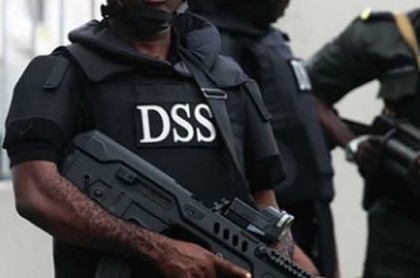VOICES OF HISTORY: The manipulation of religion in Nigeria, by Dan Agbese

SMS: 08055001912
Dr Yusufu Bala Usman. Remember him? Not many of us dare forget the late radical, leftist scholar, an historian who positively influenced young students in the Ahmadu Bello University, Zaria. The students were nicknamed “Bala Brought Up” to correctly situate their radical leftist politics.
Usman railed against incompetence in government – be it military or civilian. He was very much aware of our nation’s fault lines. The major and troubling fault lines for him were religion and ethnicity. They have been, and still are, the greatest tools for manipulating the nation and wasting its immense human and natural resources; hence Nigeria remains a potentially great nation because its feet are tied to the millstones of the manipulation of our fault lines.
The manipulation of these fault lines retards our national progress and hobbles our national cohesion and unity. Their manipulation has become tools for the purposes of securing political and economic advantages in our multi-ethnic and multi-religious nation. These manipulative tools are used to oppress and suppress other ethnic groups and people of different religious faiths. They hold down our national progress. The manipulation creates worsen our faulty leadership recruitment process. Men who are not fit to lead a village council are manipulated into leadership and crowned our political leaders at national and sub-national levels.
Ethnic and religious fault lines are, if you like, the twin evils of our nation. In each political generation, these fault lines tend to widen to accommodate new twists in their unending manipulation to meet new and refurbished ethnic and religious ambitions and interests.
Usman saw it coming. He foresaw that our nation would eventually come to this sorry pass at which the manipulation of these fault lines would effectively widen them and scuttle our attempts at national unity and cohesion and arrest our national development. Perhaps, his greater worry was the religious fault line and its crass and shameless manipulation by the denizens of the political power kingdom, not for purposes of gaining heaven but for the more mundane pursuit and acquisition of political power and opportunities and, of course, personal wealth in the individual kingdom here on earth.
In 1987, the repressible scholar published a 166-page book, The Manipulation of Religion in Nigeria, 1977-1987. The book grew out of his lecture on the subject organised by the Students’ Union, Institute of Administration, Ahmadu Bello University, Zaria, in November 1977. The book itself is made up of his other lectures dealing with national unity and cohesion or lack thereof over a ten-year period. He mocked the NPN slogan of One Nation, One Destiny with his own slogan, No Nation, No Destiny.
This column is based on his book. I have also borrowed its title for this column. The alarum he sounded some 35 years fell on deaf ears. We may ignore it, but we cannot deny that it casts ominous shadow on our nation and its people. In his foreword to the book, Professor Usman A. Tar, points out that “The book echoes the material foundations of power politics in Nigeria with key focus on how religion, region and tribe are bandied as platforms for negotiating access to power and wealth.”
This, I think, is actually the crux of the manipulation of both religion and ethnicity in our country. When we cannot get access to power and wealth in the context of the distribution of our national resources, we cry marginalisation. The manipulation of religion has had a deleterious effect on the unity of a country desperate for unity. It has made it impossible for our leaders at all levels to effectively manage our ethnic and religious diversities. Inherent in the manipulation of ethnicity and religion is the unwritten code enforced to fence out other tribes and people of different religious faith from the national feeding trough.
Before the students invited Usman to deliver the lecture on this sensitive subject, he had watched for years and seen how the manipulation of religion had manipulated the nation and its citizens. He saw how every political decision in the country was coloured by ethnicity and religion; and perhaps more importantly, how, for the sole of purpose of manipulating religion, every political development was seen through the religious prism.
Usman was prescient. Consider this: “The meaning and significance of the increasingly violent political campaigns built around differences in this country today, can only be understood when seen within the larger context of what has been happening to Nigeria, to Nigerians…”
He wrote that some 35 years ago. Nothing, as you can see, has changed in our country. Take that back. Almost everything has gone from bad to worse. It may not be the change we crave but it is the change we have. The manipulation of religion has become an article of faith among those who seek to dominate the political space, not for the sake of Nigeria and the Nigerians, but for the sake of access to power and wealth at the expense of the nation and its people. We are poised for other people’s jugular.
Usman cites three instances of the pattern of the manipulation of religion, namely, the assassination of General Murtala Muhammed in a failed coup led by Lt-Col Suka Dimka; a lecture by Professor Chike Obi, which he described as “… an example of a well-tuned act of manipulating religion in Nigeria today;” the third was the sharia debate in the constituent assembly which “… provided an excuse for the publication of provocative and scurrilous articles purporting to support or oppose the sharia in newspapers.”
According to him, some serious, if diabolical, attempts were made to present the assassination of General Muhammed in stark religious terms of Christians versus Muslims. Attempts were made locally and internationally “to present Murtala as a Muslim martyr and his assassins as Christian villains.” The attempt might have failed but it left a residue of its cynical mark on the nation’s conscience by creating the impression that there is a silent war between the two major religions, each of which is in search of its own champions.
More importantly it continues to define political contest or elections in terms of us versus them and thus makes nonsense of political pluralism and the freedom of choice inherent in a democracy. The manipulation of religion is intended to drive a wedge between the two dominant religions in the country. We are not just navigating tortuous political and economic landmines; we also have to navigate religious and ethnic sensitivities.
The current controversy over the Muslim-Muslim presidential ticket of APC throws up the challenge of navigating the religious sensitivities for purposes of capturing power. We are not electing religious leaders; we are electing secular political leaders, men who offer themselves to serve the nation at the highest level because they believe they have the capacity to turn the misfortunes of our nation into fortunes. But because we have dragged religion into the political decision-making process, our political leaders give pride of place to religion to endorse their political decisions. They need the religious imprimatur.
Thus did the presidential candidate of APC, Asiwaju Ahmed Bola Tinubu feel he needed to tell the world that his choice of a running mate was endorsed by Christian clerics. His handlers made a crude, tendentious and desperate show of it. They recruited men from the motor park in Abuja, dressed them in borrowed robes of Catholic bishops and transported them to the venue where Senator Shettima was unveiled as Tinubu’s running mate last month. The manipulation of religion takes many forms but serves only one purpose, to wit, to use religion as a prop for personal and group or sectional ambitions and interests. The presence of the fake bishops was not winner. Fake bishops do not win elections. it was a needless attempt to do right by the Christian community.
Why has religion become important in this purely civic and secular duty performed by Nigerians to have a say in who governs them? The answer lies in the fact that having invited religion as an arbiter in the political decision-making process, the politicians must accord it the place in deserves in their political calculations both as crude manipulation and as a winning strategy. The assumption is that like the Israelites, the Muslims and the Christians would each go to their tent and vote for the party whose candidates are of the same faith with them. This is a dangerous assumption. But it has assumed a centre stage in our political discourse, including the proper management of our diversities.
It does serious injuries to our democracy and confuses our patriotism. It denies the electorate the right to make rational choices of their preferred candidates based on what they think of each man’s antecedents, integrity, competence, and ability rather than the deity he worships. It forces the electorate to vote on sentiment; consequently, it foists on the nation mediocre, incompetent, and indifferent leadership. We choose because he is our own; not because he has a proven track record of competence and qualitative leadership. Yep, Richard Dworkins is right: religion poisons everything.In his conclusion to the 1977 lecture, Usman said: “The real basis of the manipulation of religion in Nigeria today is the need to obscure from the people of Nigeria a fundamental aspect of our reality: that is the domination of our political economy by a class of intermediaries who are being increasingly exposed. And this is to enable this class to cover themselves with religious and ethnic disguises in order to further entrench division among our people, slow down their awakening, at any cost; even the unity of our country, for which so much has been sacrificed.”



